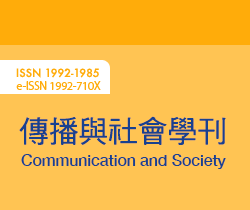 |
| January 2021 |
 |
55 |
|
| 研究論文Research Articles |
| Facebook 假新聞第三人效果研究 |
| The Third-Person Effect of Fake News on Facebook |
|
|
|
 |
 (7892)
(7892)
|
| 作者 |
賴麒元、王嵩音 |
| Author |
Chi-Yuan LAI, Song-In WANG |
| 關鍵詞 |
Facebook假新聞、第三人效果、媒體素養、媒介規範、事實查核 |
| Keywords |
Facebook, fake news, third-person effect, media literacy, media regulation, fact-checking |
| 摘要 |
本研究使用網路問卷調查法研究Facebook使用者面對假新聞時,是否存在第三人效果,並運用結構方程模型探討媒介可信度、自我效能感、議題涉入感等因素與第三人效果認知的關聯,以及第三人效果認知能否影響後續行為。經分析495份有效樣本顯示第三人效果的確存在。而媒介可信度與第三人效果認知差距呈負相關,自我效能感與第三人效果認知差距呈正相關。在後續行為方面,第三人效果認知差距越大,支持媒體素養行為傾向越強烈。 |
| Abstract |
This study aims to examine the third-person effect of fake news on Facebook. A theoretical path model is proposed to test the predictive power of media credibility, self-efficacy, and issue involvement on third-person perception and the relationships between it and three behavioral outcomes: media literacy support, media regulation support, and intention to use factcheckers. The data were obtained from an online survey. The results showed that media credibility was a negative predictor and self-efficacy was a positive predictor of third-person perception. The path model also revealed that only the path coefficient from the third-person perception to media literacy education was significant, indicating that those with a greater degree of third-person perception were more likely to support media literacy education. The implications of the findings are discussed, and recommendations for future research are provided.
本文引用格式﹕
賴麒元、王嵩音(2021)。〈Facebook假新聞第三人效果研究〉。《傳播與社會學刊》,第55期,頁19–56。
Citation of this article:
Lai, C.-Y., & Wang, S.-I. (2021). The third-person effect of fake news on Facebook. Communication and Society, 55, 19–56.
|
|
|
 |
| No.74 2025 October |
 |
| No.73 2025 July |
 |
| No.72 2025 April |
 |
| No.71 2025 January |
 |
| No.70 2024 October |
|
